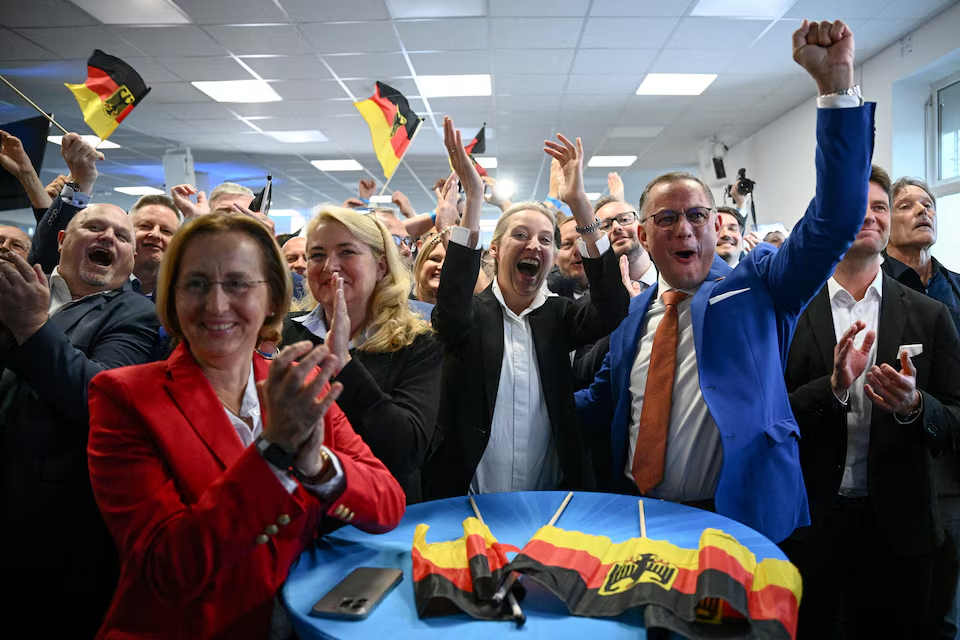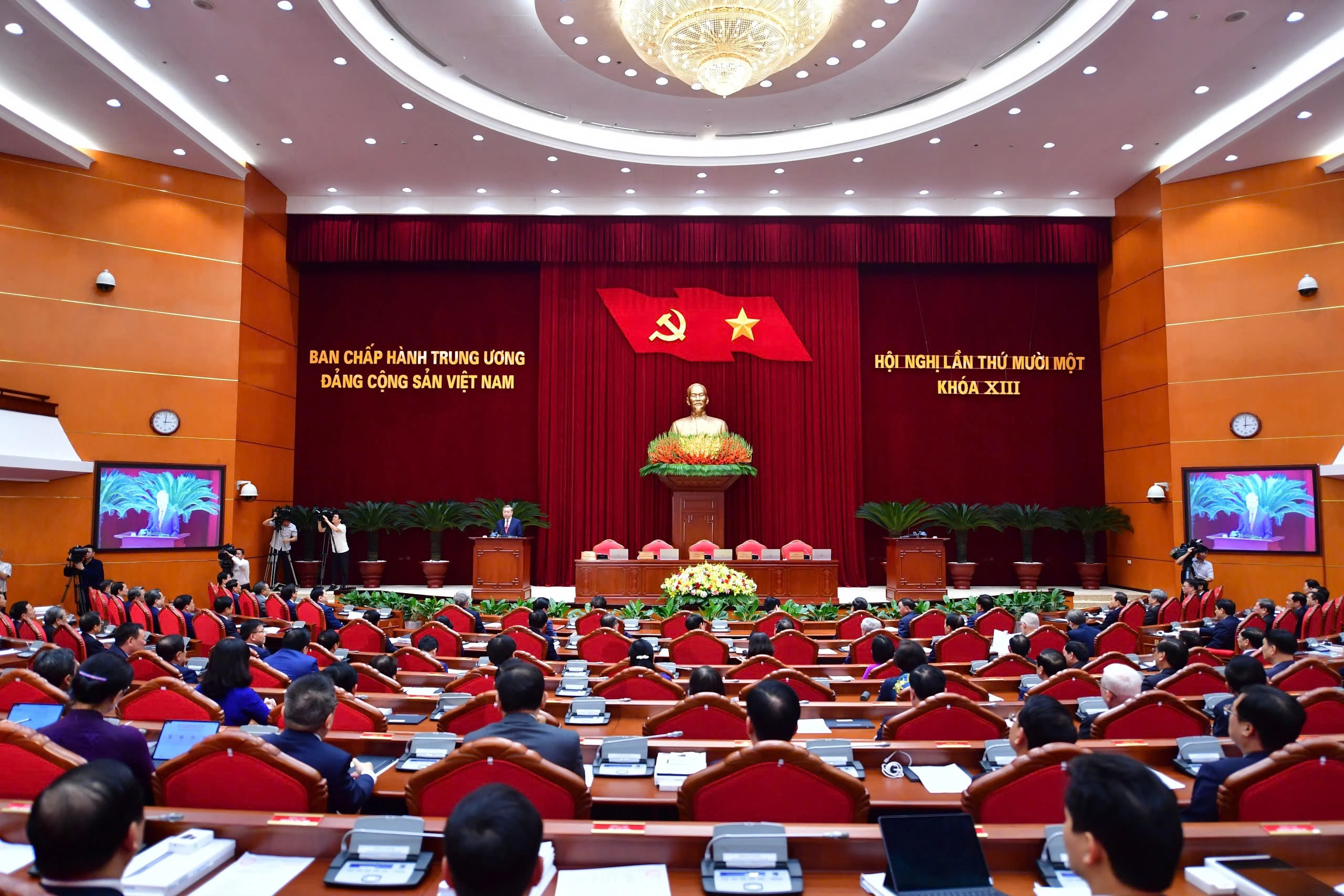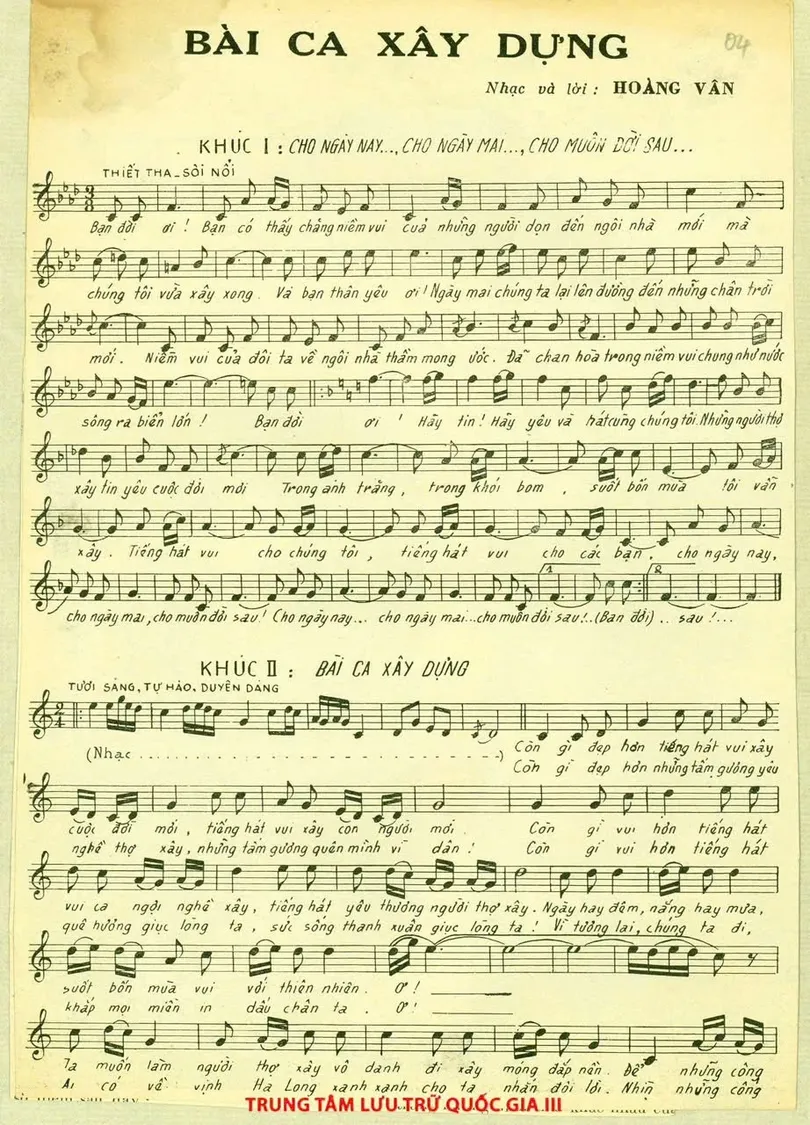Support for the far-right AfD party in Germany has risen by 11 percentage points to 16% among people under 25, according to an Infratest Dimap poll. The shift has helped AfD reach a historic second place nationwide.
While the far right is not doing well in every area, and is a relatively small group in an aging continent, the trend will still worry mainstream parties, who face early elections later this month in France and federal elections next year in Germany.

AfD co-leaders react to the results after the European Parliament votes ended in Berlin, Germany, June 9. Photo: Reuters
Economic concerns rise, climate concerns fall
A recent study found that young Germans are increasingly worried about inflation, expensive housing and social divisions, and less worried about climate change. The Greens won just 11% of the youth vote on June 9, down 23%.
“They no longer believe that just working hard will lead to a better future, and they are disappointed with the ruling parties,” said lead author Simon Schnetzer, noting that economic gloom is making them more receptive to the AfD’s anti-immigration rhetoric.
Christoph, 17, a business student in Berlin, said he found recent immigrants to Germany more prone to violence and unwilling to integrate.
"I'm worried because I see the far-right wants to expel people even if they have German citizenship like me. But Germany is home for me," said Ensar Adanur, 17, a German of Turkish origin.
In France, the far-right National Rally (RN) party took 25 percent of the vote among 18- to 24-year-olds, up 10 percentage points from an overall increase of around 8 percentage points to 31.4 percent, according to pollster Ipsos. While most young people in the EU’s two leading powers still support left-wing parties, many are worried about the latest trend.
Even in Poland, support for the far-right League among voters aged 18-29 rose from 18.5% to 30.1%, making them the top choice for that demographic.
On social media
Far-right parties' relative proficiency in video apps like TikTok and YouTube is a big factor behind their growing success with younger generations, analysts say.
A recent study of German youth found that 57% of young people get their news and politics from social media. German Chancellor Olaf Scholz, like many mainstream politicians, joined TikTok just a few months ago. “If you’re not on youth channels, you just don’t exist,” Schnetzer said.
In Spain, social media influencer Alvise Perez won 6.7% of the youth vote, compared to 4.6% of the total vote across all ages, after running an anti-immigration and anti-corruption campaign almost exclusively on Instagram and Telegram.
Meanwhile, the far-right Vox party, which is strong on TikTok, garnered 12.4% of the vote among people under 25, compared to 9.6% overall.
Ngoc Anh (according to Reuters)
Source: https://www.congluan.vn/phe-cuc-huu-xam-nhap-vao-gioi-tre-chau-au-nhu-the-nao-post299300.html



![[Photo] Prime Minister Pham Minh Chinh chairs the Government's special meeting on law-making in April](https://vstatic.vietnam.vn/vietnam/resource/IMAGE/2025/4/13/8b2071d47adc4c22ac3a9534d12ddc17)































![[Photo] Closing of the 11th Conference of the 13th Central Committee of the Communist Party of Vietnam](https://vstatic.vietnam.vn/vietnam/resource/IMAGE/2025/4/12/114b57fe6e9b4814a5ddfacf6dfe5b7f)





























































Comment (0)